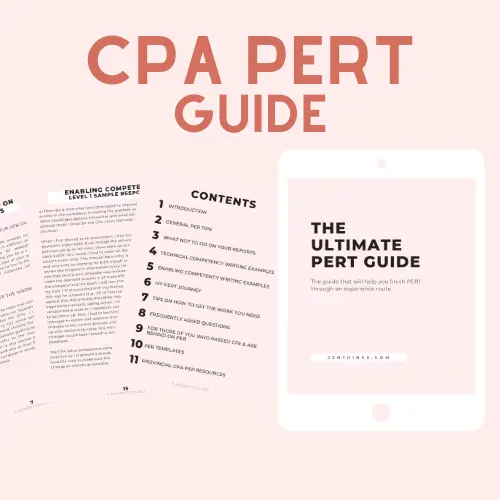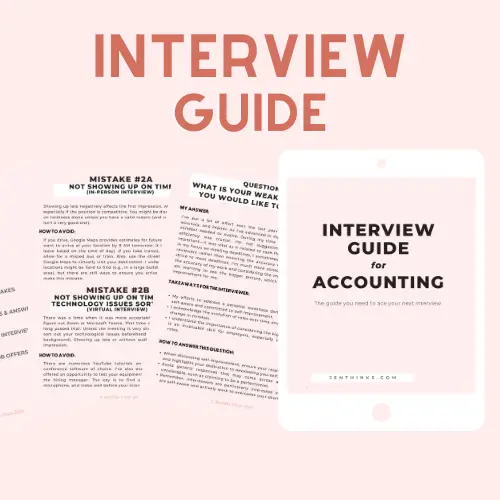Join me on Instagram for regular tips & updates! Also, don’t forget to subscribe to my newsletter so you don’t miss any posts!
Since I resumed learning Python for finance, I have been thinking a lot about when I took my first accounting course over four years ago. It did not happen during my undergrad as I took a number of earth science courses as my elective instead. Those courses always worked well with my schedule which was a big reason why I took them. In hindsight, I probably would have benefited more if I had taken some business or computer science classes instead. However, I am a believer of it is never too late for learning something. So, here I am learning Python on my own that will hopefully benefit my finance career as an accountant.
Click Here to Read All of My Python for Finance Posts
Originally, I thought I would share my random thoughts on Instagram story and call it a day. I changed my mind when I realized I should document them here. If you decide to learn Python as an accountant or any new skill down the road, I hope this will help you prepare for what might go through your mind.
You (Or Others) Would Question Whether You Have What It Takes
I told Eric I wanted to learn coding (specifically Python) months ago. I would be lying if I told you he had absolutely no doubts. Don’t get me wrong – Eric has been my biggest supporter for years. He was the one that told me to start a blog (for years before I finally did it) and the one that introduced me to the CPA PEP (which you all know, one that I love). However, he wasn’t sure if my personality and learning styles fit the traditional coder stereotype. To be honest, I also had doubts.
But, like I said times and times again, you must believe in yourself. We should all be aware that there is no one mold fits all in this day and time. Technology changes so rapidly that everyday brings a new trend. If you have trouble finding someone who you can relate to and has accomplished what you want, be that person for yourself.
You Would Question Yourself Whether You Are Interested In The Materials Enough
I spent about an hour on the Learning Python course after work today and almost fell asleep. It was not from the lack of sleep because I actually had a great sleep yesterday. However, the material was so dry. Being an introductory course, the instructor focused on the basics. The codes were short and the results meaningless (e.g., today’s date). In sum, nothing was exciting and a lot of it was confusing (to a newbie like myself).
However, this is part of the learning curve. In the beginning, we often struggle to understand what we are being taught . This reminded me of when I took my first accounting class. Being able to read and understand a financial statement was like a wild dream to me. Fast forward to four years later, I wrote the 3-day CFE that contained a 5-hour exam about nothing but financials! Over the last four years, I found topics in finance that I loved (e.g., variance analysis, financial ratios etc.). At the same time, I found areas that I could not pretend to be excited about even if I was paid to (e.g., corporate tax).
I am positive that my Python/coding journey would be the same: I would find areas that I love and areas that I could not care less about. To get there, I need to appreciate and work through the initial struggles.
You Would Question Yourself Whether This New Skill Will Translate To A Promotion/Bigger Raise
I am a very practical person. I don’t believe in working for free except for volunteering for a good cause. My time is valuable to me and work is not the only thing that matters. Therefore, when I made the decision to learn python as an accountant, I made it with the goal of enhancing my finance career. In another word, I decided to learn python so I can continue to progress in my career and get a better-paying job.
The problem with learning python for finance is that it is difficult to find a mentor who has done exactly what I want. Because of this, I relied on the internet a lot and this story resonated with me the most. Right now, I don’t have any hard data to show you if you asked me whether learning python will lead you to a promotion or more money. However, I know what I will say to the interviewer if he/she asks me why me over other candidates: I took the initiative to improve my skills and I will do the same with any challenge at work.
You Would Question Yourself Whether You Have Time At All
We all know everyone has the same 24 hours a day. Yet, it seems that some superhumans have more and others have less. On this topic, I wrote a post on time diary last year. Basically, if you say that you don’t have enough time, do you truly know how you spend your time? Time is a lot like money – if you know the ins and outs, you know what the opportunity cost is when you want to spend it on one thing over another.
If something matters enough, you will find time for it.
You Would Question Yourself Whether This Course Is The Best
I wish I have an answer for you for this question. A struggle I have with learning Python for finance is the lack of a clear path for accountants. The abundance of free python resources in addition to paid Python boot camps online is both a blessing and a curse. It is a blessing because you don’t need to spend a dime on it if you don’t want to (especially when your work likely will not cover for it unless your job requires coding skills). It is a curse as anyone can offer a Python course and you likely will not know its quality or applicability until you finished the course. If the course does not turn out to be what you want, you would have wasted valuable time.
RELATED – Learn Python for Finance As An Accountant — Why & My First Plan
This is a very big reason why I decided to share my new journey as well. Once I have done it, I will be able to share with you what worked and what did not. I try to remind myself several things:
- remember sunk cost – just because I started a course, it does not mean I need to finish it (if it simply isn’t value-adding)
- the basics will be dry in the beginning but it will be useful in the future
- keep thinking of ways to incorporate what I learn in real life and at work – nothing solidifies knowledge better than real life applications!
Ending Thoughts
Learning something new can be scary and exhausting at times. I always like to remind myself the ‘why’ when times get hard. Also, nothing worth having comes easy. If Python is easy for accountants to learn, it will not lead you to the same potential rewards (e.g., a promotion) because everyone can just do it.
Remember why you decide to start a journey and believe in yourself.



Hello,
I am a licensed CPA and have around 12 years of experience doing accounting. I work on the private side. I am currently learning Python and SQL. I was inspired by the old controller at my current job who produced amazing excel reports. These reports could slice and dice the data any way you wanted. I even asked him if he would like to sell these reports to other accounting departments because they were so good. This has lead me on my journey to learn Python and SQL.
Most accountants rely on the ERP systems to do their job. They are confined to what reports the ERP can run. By combining Python SQL and Excel you can customize the data/reports that accountants can use (just like the old controller) and produce what ever you want.
This is the next level if you want to be on the private side. You can always find someone who can do the debits and credits but to truly master the data and provide meaningful reports to the end user (usually accountants) you will set yourself above the rest of the pack. Combining Excel (the output), Python (the engine to do what ever sort of programing you want to do) and SQL (the source of the data) the sky is the limit.
I hope this helps you and anyone else who reads this. These are not must have skills for accountants but if you want to set yourself apart from the rest then I think this is the way to go.
Thanks,
Mike
Hi Mike,
I really appreciate you sharing this! Also, “amazing excel reports” sounds very exciting. I heard a lot about SQL as well but how you broke it down was very useful. The profession is placing more emphasis on data skills. Now is definitely the time to catch up.
If you don’t mind sharing, what Python/SQL courses have you taken/been taking?
I am going to share this on my Instagram because I don’t want anyone to miss this!
Thanks again Mike.
Jen